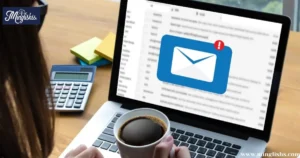“Sometimes, the best response is to let go and move on.”
In our daily conversations, we often encounter moments where we want to dismiss a topic or encourage someone to overlook a previous statement. The phrase “never mind” serves this purpose effectively; however, using the same expression repeatedly can make our conversations feel monotonous. Exploring alternative phrases not only enhances our communication skills but also adds variety and richness to our interactions.
For instance, you might find yourself in a discussion where someone misinterprets your point. Instead of saying “never mind,” you can use a different expression to convey your sentiment, helping the other person understand that they shouldn’t dwell on the misunderstanding. Choosing the right phrase can strengthen your communication and demonstrate your willingness to maintain a positive dialogue.
This blog aims to provide a comprehensive list of 35 alternative expressions to convey the same sentiment as “never mind.” Each alternative will include a scenario to illustrate its use, an explanation of its context, and additional tips for effectively incorporating it into your conversations. Let’s dive into these expressions and discover how they can transform your communication style!
35 Alternative Expressions for “Never Mind”
1. “Forget It”
Scenario: After realizing a conversation is going in circles.
Subject Explanation: When discussing a topic with Rachel, it becomes clear she doesn’t grasp your point. You might say, “Forget it,” to signal the need to move on. This expression indicates that the issue is no longer worth discussing and invites everyone to refocus.
Additional Tip: Use this phrase when you sense that continuing the conversation is unproductive.
2. “Don’t Worry About It”
Scenario: When someone feels guilty for misunderstanding.
Subject Explanation: If Tom feels bad for misinterpreting your instructions, saying “Don’t worry about it” reassures him that the mistake is insignificant and encourages him to move forward without dwelling on it.
Additional Tip: Pair this phrase with a smile to convey warmth and understanding.
3. “It’s All Good”

Scenario: After a minor disagreement.
Subject Explanation: After a slight argument with your friend Alex, saying “It’s all good” helps to diffuse tension, indicating that you harbor no hard feelings and are ready to move on.
Additional Tip: This phrase works well in informal settings to lighten the mood.
4. “No Problem”
Scenario: When addressing an unintentional mistake.
Subject Explanation: If Jamie accidentally spills coffee on your notes, saying “No problem” shows that you’re not upset and can easily brush off the incident. This encourages a positive atmosphere and reaffirms that such mistakes happen.
Additional Tip: Use this expression to promote a relaxed environment, especially in social situations.
5. “Never Mind That”
Scenario: When discussing a trivial issue.
Subject Explanation: While discussing plans with Lisa, you realize a detail is not important. Saying “Never mind that” signals to Lisa to disregard that specific detail, allowing the conversation to continue smoothly.
Additional Tip: This phrase helps refocus the conversation on more pressing matters.
6. “Let It Go”
Scenario: When someone insists on discussing a past error.
Subject Explanation: If Mark keeps bringing up a mistake from a previous project, saying “Let it go” encourages him to focus on the present rather than fixating on the past. It promotes a forward-thinking mindset.
Additional Tip: Use this phrase to promote personal growth and resilience among peers .never mind
7. “Don’t Sweat It”
Scenario: When someone overreacts to a minor issue.
Subject Explanation: When Claire is upset over a small error in the presentation, saying “Don’t sweat it” reassures her that the mistake is minor and not worth the stress, encouraging her to stay calm and focused.
Additional Tip: This phrase is particularly effective in casual environments never mind.
8. “Move On”

Scenario: When someone lingers on an outdated topic.
Subject Explanation: If your colleague keeps discussing an old project, saying “Move on” suggests it’s time to shift focus to current priorities, helping maintain productivity.
Additional Tip: Use this expression to keep meetings and discussions on track never mind.
9. “Let’s Drop It”
Scenario: When a conversation becomes too heated.
Subject Explanation: After a debate with friends about politics, saying “Let’s drop it” signals a desire to steer clear of conflict and return to lighter topics.
Additional Tip: This phrase can act as a peacekeeping tool in tense discussions.
10. “That’s Not Important”
Scenario: When discussing trivial matters.
Subject Explanation: If someone focuses on a minor detail during a meeting, saying “That’s not important” helps redirect attention to more relevant issues and emphasizes efficiency.
Additional Tip: Use this phrase to prioritize discussion topics effectively never mind.
11. “Forget About It”
Scenario: After someone makes a small error.
Subject Explanation: When Sarah mistakenly inputs incorrect data, saying “Forget about it” reassures her that the error is inconsequential and encourages her to focus on correcting it.
Additional Tip: This expression can help alleviate stress in work environments.
12. “That’s Okay”
Scenario: When addressing a friend’s concern never mind.
Subject Explanation: If Ethan is worried about not contributing enough during a project, saying “That’s okay” reassures him that his presence and effort are appreciated, encouraging future participation.
Additional Tip: Use this phrase to encourage others to participate without fear of judgment.
13. “It’s Not a Big Deal”
Scenario: When someone feels embarrassed.
Subject Explanation: If Jessie feels embarrassed about an accidental slip of the tongue, saying “It’s not a big deal” helps to alleviate her discomfort and encourages her to move past the moment.
Additional Tip: This phrase fosters a supportive environment where mistakes are normalized never mind.
14. “Let’s Forget It”
Scenario: After a disagreement.
Subject Explanation: Following a heated debate with your partner, saying “Let’s forget it” suggests a desire to put the disagreement behind you and focus on maintaining harmony in the relationship.
Additional Tip: This phrase works well to reinforce positive dynamics in personal relationships.
15. “No Need to Discuss It”
Scenario: When addressing an irrelevant topic.
Subject Explanation: If a colleague brings up a point that’s not pertinent to the meeting agenda, saying “No need to discuss it” helps steer the conversation back on track and emphasizes efficiency.
Additional Tip: Employ this phrase to maintain focus in meetings.
16. “Just Forget It”
Scenario: When someone fixates on a mistake.
Subject Explanation: If your friend keeps worrying about a comment made during a conversation, saying “Just forget it” signals that the issue is not worth their time and encourages them to move on.
Additional Tip: This phrase can help friends maintain a positive outlook in their relationship.
17. “That’s Water Under the Bridge”
Scenario: When reminiscing about past conflicts.
Subject Explanation: If old grievances arise in a conversation, saying “That’s water under the bridge” signifies that past conflicts are resolved, allowing you to focus on the present and future never mind.
Additional Tip: This expression helps foster forgiveness and healing in relationships.
18. “It Doesn’t Matter”

Scenario: When addressing a small setback.
Subject Explanation: If a minor hiccup occurs in your plans, saying “It doesn’t matter” conveys that you are willing to let go of the inconvenience and continue moving forward.
Additional Tip: Use this phrase to cultivate a resilient mindset in challenging situations never mind.
19. “Let’s Move Forward”
Scenario: After discussing a setback.
Subject Explanation: Following a project delay, saying “Let’s move forward” emphasizes the importance of looking ahead and finding solutions rather than dwelling on the past.
Additional Tip: This phrase encourages proactive thinking and determination in achieving goals never mind.
20. “No Harm Done”
Scenario: After a light-hearted mishap.
Subject Explanation: If a friend accidentally spills a drink, saying “No harm done” reassures them that the accident is not serious and that you can easily clean it up together.
Additional Tip: This phrase fosters a playful atmosphere among friends never mind.
Other Ways to Say “To Do So”
21. “It’s Fine”
Scenario: When someone expresses concern.
Subject Explanation: If a colleague apologizes for being late, saying “It’s fine” reassures them that their tardiness is not an issue and helps maintain a positive tone.
Additional Tip: Use this expression to convey understanding and support in professional settings.
22. “Let’s Not Dwell on It”
Scenario: After a mistake occurs.
Subject Explanation: If your teammate keeps worrying about an error made during a presentation, saying “Let’s not dwell on it” encourages them to focus on future opportunities instead.
Additional Tip: This phrase promotes a growth mindset in collaborative environments never mind.
23. “No Need to Worry”
Scenario: When someone expresses anxiety.
Subject Explanation: If your friend is stressed about an upcoming exam, saying “No need to worry” helps ease their anxiety and reminds them to focus on their preparations.
Additional Tip: Use this expression to show empathy and understanding during stressful times.
24. “Don’t Think Twice About It”
Scenario: When someone hesitates to ask for help.
Subject Explanation: If your friend is unsure about seeking your help with a project, saying “Don’t think twice about it” encourages them to reach out, indicating your willingness to support them never mind.
Additional Tip: This phrase promotes open communication and trust in relationships.
25. “Leave It Be”
Scenario: When discussing a past event.
Subject Explanation: If someone keeps bringing up an old incident that no longer matters, saying “Leave it be” suggests that it’s best to move on from the topic entirely.
Additional Tip: This expression is useful when trying to maintain a positive atmosphere.
26. “Let’s Just Move On”
Scenario: When a topic becomes repetitive.
Subject Explanation: During a discussion, if participants keep circling back to the same point, saying “Let’s just move on” encourages everyone to transition to fresh topics.
Additional Tip: This phrase is effective in group discussions or meetings.
27. “It’s Not Worth It”
Scenario: When addressing an insignificant issue.
Subject Explanation: If a small problem arises that doesn’t warrant attention, saying “It’s not worth it” conveys that it’s better to focus on bigger matters never mind.
Additional Tip: Use this phrase to prioritize time and resources effectively.
28. “Forget About That”
Scenario: When a detail isn’t relevant.
Subject Explanation: If someone keeps stressing over a minute detail in a plan, saying “Forget about that” helps refocus their attention on the larger picture.
Additional Tip: This expression encourages clear and concise communication.
29. “Put It Aside”

Scenario: When a topic becomes overly complex.
Subject Explanation: If a discussion is getting too tangled, saying “Put it aside” suggests that it’s best to revisit the topic later, maintaining clarity in the conversation.
Additional Tip: This phrase helps keep discussions manageable and productive.
30. “Let’s Change the Subject”
Scenario: When a topic is uncomfortable.
Subject Explanation: If someone brings up an awkward subject during dinner, saying “Let’s change the subject” allows you to smoothly transition to a more pleasant conversation.
Additional Tip: This phrase is helpful for maintaining a comfortable atmosphere in social situations.
31. “That’s Behind Us Now”
Scenario: After resolving an issue.
Subject Explanation: When discussing a conflict that’s been resolved, saying “That’s behind us now” reassures everyone that it’s time to focus on the future never mind.
Additional Tip: This expression encourages a sense of closure and positivity.
32. “That’s Not Relevant”
Scenario: When addressing a distraction.
Subject Explanation: If someone brings up an unrelated topic during a meeting, saying “That’s not relevant” redirects the conversation back to the agenda, promoting efficiency.
Additional Tip: Use this phrase to keep discussions streamlined and focused.
33. “No Need to Rehash It”
Scenario: When someone keeps revisiting a point.
Subject Explanation: If colleagues keep revisiting a discussion point, saying “No need to rehash it” encourages everyone to move forward without dwelling on what’s already been said.
Additional Tip: This phrase can help maintain a positive and productive environment never mind
34. “It’s Not Important Right Now”
Scenario: When addressing a current focus.
Subject Explanation: If a colleague brings up an old issue during a planning session, saying “It’s not important right now” helps keep the focus on the immediate tasks at hand.
Additional Tip: This phrase promotes prioritization and clarity.
35. “It Can Wait”
Scenario: When someone insists on discussing a future issue.
Subject Explanation: If a friend keeps pushing a topic that isn’t urgent, saying “It can wait” encourages them to focus on more pressing matters, fostering a sense of urgency.
Additional Tip: Use this expression to establish boundaries regarding discussion topics.
Pros and Cons of Using Alternative Expressions
Pros
- Variety in Communication: Using different phrases prevents monotony and keeps conversations engaging.
- Clearer Understanding: Different expressions can convey nuances that “never mind” might not capture.
- Stronger Relationships: Acknowledging others’ feelings with varied language fosters trust and respect.
Cons
- Potential Confusion: Some phrases might be less familiar, leading to misunderstandings.
- Cultural Differences: Not all expressions translate well across cultures, which could create barriers.
- Overuse of Casual Language: In formal settings, some alternatives may seem too casual or inappropriate.
Conclusion
In conclusion, incorporating alternative expressions for “never mind” into your vocabulary can significantly enhance your communication skills. Each phrase carries its own nuances and applications, allowing you to express yourself more precisely in various situations. Whether you’re seeking to diffuse tension, redirect a conversation, or reassure a friend, these alternatives will serve you well.
By employing these expressions, you not only enrich your dialogue but also foster positive interactions with those around you. Remember, effective communication is not just about what we say but how we say it. So, next time you feel inclined to say “never mind,” consider one of these alternatives to make your conversations even more impactful!
Answer to key question
1. When should I use alternative expressions instead of “never mind”?
Use alternative expressions when you want to convey a specific sentiment, emphasize understanding, or when the context calls for a more nuanced response.
2. Can these phrases be used in formal settings?
Some phrases are better suited for informal conversations. Be mindful of the context and audience when choosing which expression to use.
3. How can I remember these alternatives?
Practice incorporating them into your daily conversations. The more you use them, the more natural they will become.
4. Are there cultural differences in these expressions?
Yes, some phrases may have different connotations in various cultures. It’s essential to be aware of the context and audience when using alternative expressions.
5. How can I ensure I don’t confuse someone with these phrases?
Stick to well-known expressions in unfamiliar environments and consider your audience’s familiarity with the phrases you choose.

Hi, I’m Isabel: I’m passionate about turning language learning into a fun adventure. I believe in making every word exciting and memorable.










